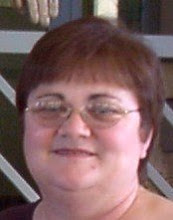I never really understood the power of reflection before. In some ways, I think of it as similar to meditation, but a little more specific. (Does that make sense?) How does one go about reflecting? When meditating, it is important to clear the mind. When reflecting, however, I need to begin with a question. I like to ponder ideas, let them ferment, and see what comes to the surface. I attended FUSION Professional Development today with about 40 teachers and administrators. Mike Hock, Ph.D., and Irma Brasseur, Ph.D., led the professional development. Several of those in attendance are teachers that I will be directly coaching this year in their classrooms when rolling out the FUSION reading class with students this year. I found a couple of ideas particularly interesting today...
- Changing view of reading...the old view of reading, termed the simple view of reading, is defined as mastery of word recognition (fluency, decoding, & sight words), comprehension of the author's message (background information, text structure, vocabulary, & syntax), and demonstration of cognitive and metacognitive processes. Ten years ago (maybe even five years ago) students at this level would do well academically. Students who were able to do this most likely achieving at average or above average levels. THIS IS NO LONGER SO! The new view of reading is much more complex. To be successful today, students must be able to do much more than what was previously needed. Students today must be able to first comprehend the information (by doing what was stated earlier), but also merge this information with prior knowledge to create new understandings. In Levy and Murnane's book, The New Division of Labor: How Computers Are Creating the Next Job Market (2004), this is exactly what they are talking about. The new job market is going to require that applicants have expert thinking and/or complex communication skills. (By the way, this is an excellent read for ALL education professionals.)

- I love how Mike Hock talked about the reciprocal relationship between the length of the opening activity (Do Now, Sponge Activity, or whatever you want to call it) and the intensity of instruction. Think about this...and you will know it is true. The longer a teacher gives students to complete an Opening Activity, the less intense the instruction generally is. Contrast this situation with a teacher who carefully times and moves forward with the instruction after the scheduled 5 minutes for the opening. The second teacher generally understands the nature of urgency and the power of time on task. I had never heard it articulated in that way - and it really stuck with me. One is definitely a function of the other. There is a relationship between these two ideas which I find very interesting to think about. I will bet that this relationship could be extrapolated out to other settings. I need to think about this some more, but I think it has to do with discipline.
Any thoughts on reflection? Have you been finding time to reflect more? I think in this world where we are constantly trying to solve problems, that we must discipline ourselves to do this. At least I know I need to. Is this really simplistic or does it make sense to you? I'd love to hear your comments!


3 comments:
Sue, I've been thinking that reflection is or needs to be an inherent part of the entire coaching process. That is, teachers pause and reflect before choosing what to work on with a coach, then reflect while co-constructing the observation form, then reflect while observing a teacher, then reflect during the collaborative exploration of data. Indeed, when you take reflection out of coaching, I think it is the kiss of death.
One of the things I have been "reflecting" on this summer is how to provide for quality reflection in my coaching & in PD. It was woven into the Critical Friends PD I attended in June and one of the ways this was done was asking participants to write for 1-5 minutes about something we'd been having a dialogue or reading about. I'm thinking I might give each teacher I work with this year a composition book for this purpose. And I totally see the correlation with use of time for the opening activity being related to the instruction that happens, or doesn't happen later. This is something I worked on with a couple teachers last year. Did Mike have any tips I could apply in my coaching?
Molly,
I think it would be appropriate to use one of the time study coaching tools. It would be interesting to corelate time & robustness of open activity to student achievement, wouldn't it?
Sue
Post a Comment